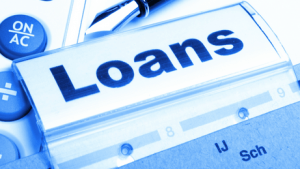GEA urges government to bring down high cost of borrowing
 Mr Adu Sarkodie, First Vice President, Ghana Employers Association (GEA), has appealed to government to take steps to bring down the high cost of borrowing from banks in the country.
Mr Adu Sarkodie, First Vice President, Ghana Employers Association (GEA), has appealed to government to take steps to bring down the high cost of borrowing from banks in the country.
He said currently Ghana’s lending rate was among the highest on the African continent.
“In Nigeria the lending rate was 15.4 per cent, Tanzania 16.3 per cent, Kenya 13 per cent, Senegal 8.5 per cent, South Africa 13 per cent, Botswana 6.5 per cent and our is still hovering around 24, 25 and 26 per cent. And yet we are going to open up our borders for free trade,” he said.
“We also noted that the lending rate is not responsive to effective monetary policy. Indeed, year in, year out, or month after month, the Bank of Ghana will come out with the monetary policy rate, but this is not reflected in the lending rates at all. Indeed, we wanted to see what the budget will do to correct the anomaly.”
Mr Sarkodie said this on Monday in Accra at Trade Union (TUC), GEA and the Association of Ghana Industries’ (AGI) Forum on the 2020 Budget and Economic Policy Statement of the Government.
The event was organised by the trio organisations in collaboration with the Rosa Luxemburg Foundation-West Africa Office-Senegal.
Mr Sarkodie urged the government to implement strategic policies to bring down the lending rates and ensure that the rate responds significantly to changes in the monetary policy regime.
He said the 2020 Budget Statement did indicate a clear path to reducing the lending rates in the short to medium-term
Quoting the Minister of Finance during the presentation of the 2020 budget before Parliament, he said: “Average bank lending rate” has fallen significantly from 31.7 per cent in 2016 to 24 per cent in 2019 but we have more to do”.
Mr Sarkodie said they have been even more worried because the records show that election year suffers a lot of fiscal slippages, which in the end, ends up with higher interest rates for all of them to pay.
“We are confident that at the setting up of the Fiscal Council, we should be able stem this tide and once and for all have thing checked,”
On the Special Import Levy (Act 861), which was introduced in 2013 to impose a one to two per cent levy to raise funds to stabilize the economy up to 2015, he said, “We need to say that the tax has duly served its purpose and it has to be abolished but to our surprise it has been renewed for another five years”.
This, he said, implies that employers would have to contend with these tax elements for yet another five fiscal years.
Mr Sarkodie said the cost of electricity in Ghana was high, which translates into the high cost of doing business in the country; stating that “Ghana does not compare favourably with neighbouring Cote d’Ivoire and Nigeria who charge $0.13 and $0.17 cents per kilowatt-hour, respectively for commercial consumers”.
He said the GEA proposed that the 2020 budget implement a price discrimination policy in favour of industrial consumers of electricity to augment production; however, the budget did not consider this proposal.
Dr Anthony Yaw Baah, General Secretary, TUC-Ghana, said the main goal of the current pension scheme reform was to improve pensions; however, if there are challenges in its implementation, then stakeholders must take a second look at it.
Dr Yaw Adu-Gyamfi, President, AGI, urged organised labour to adopt a united front in their dealings with government.
Mr Eugene Abraham, an Economist, GEA, in his presentation, said the 2020 budget has created a large degree of certainty in the economy; adding that this is good for private sector growth and business development.
Mrs Mary Karimu, Deputy Director, Labour Research and Policy Institute, TUC–Ghana, said the TUC has plans underway for the establishment of a labour bank to safeguard the welfare of the worker.
Source: GNA
